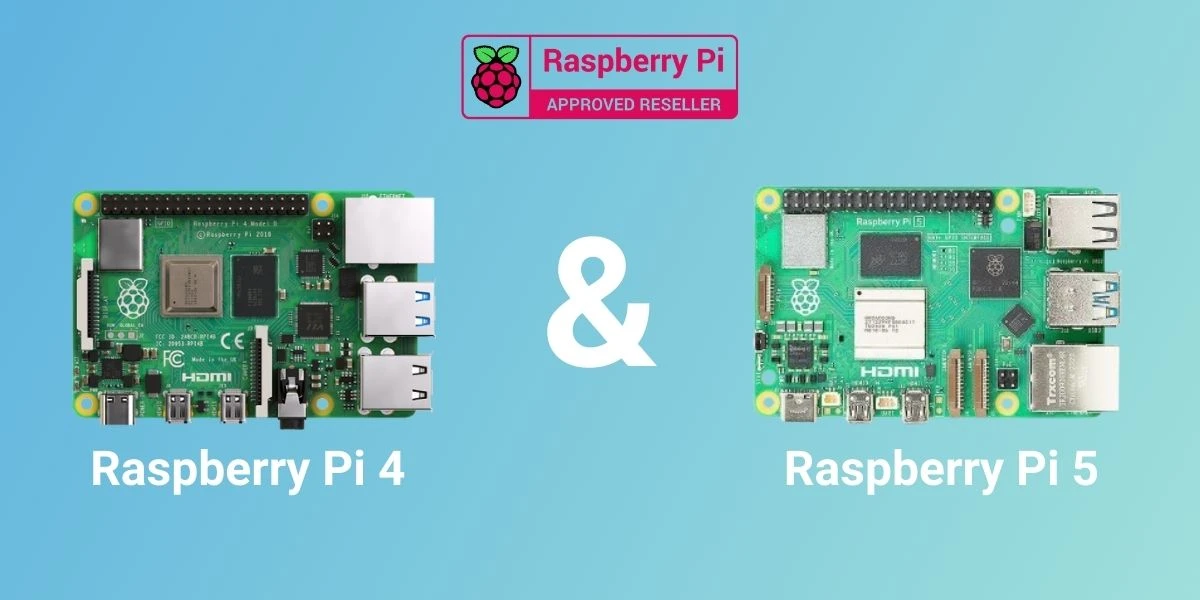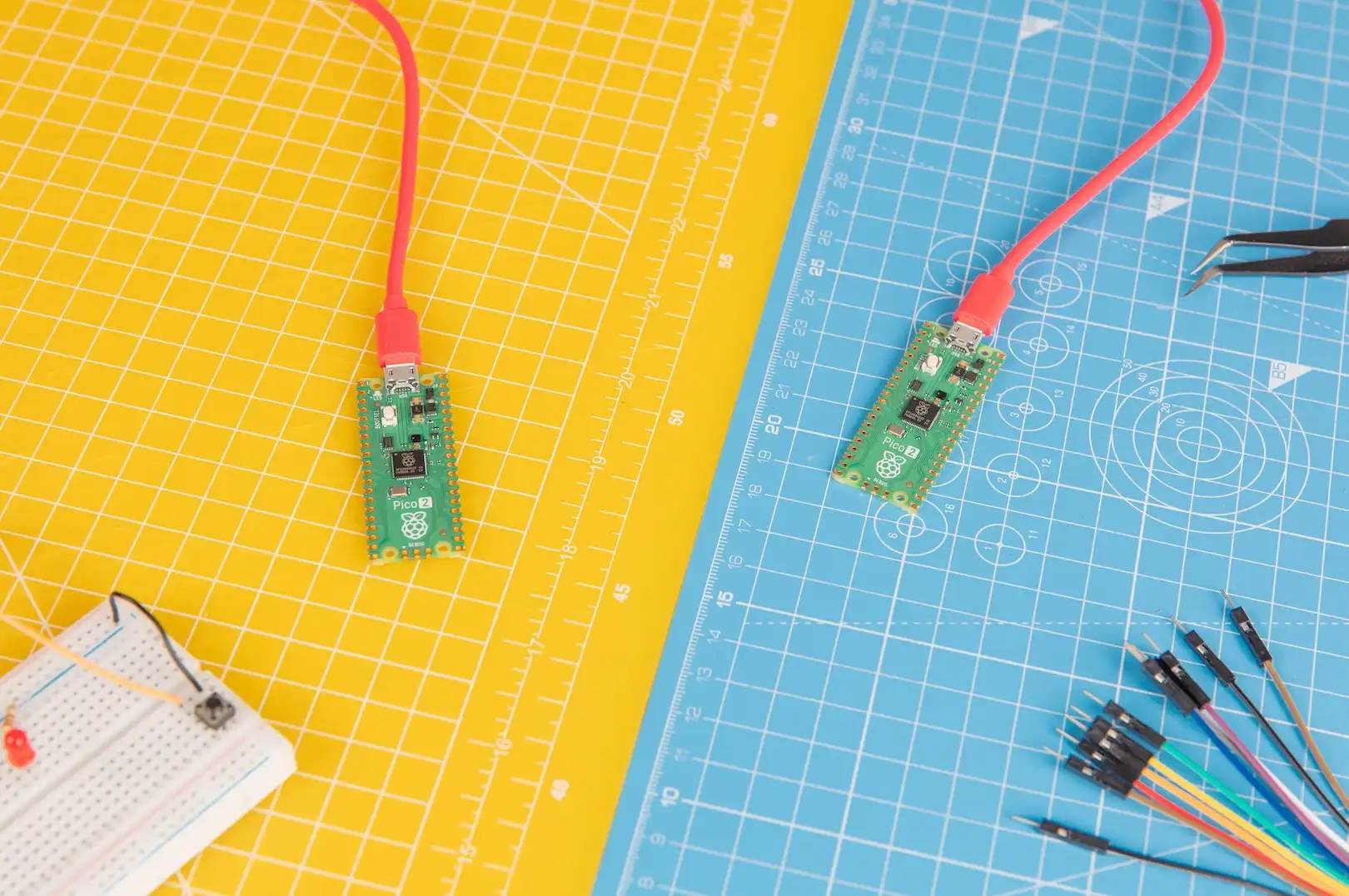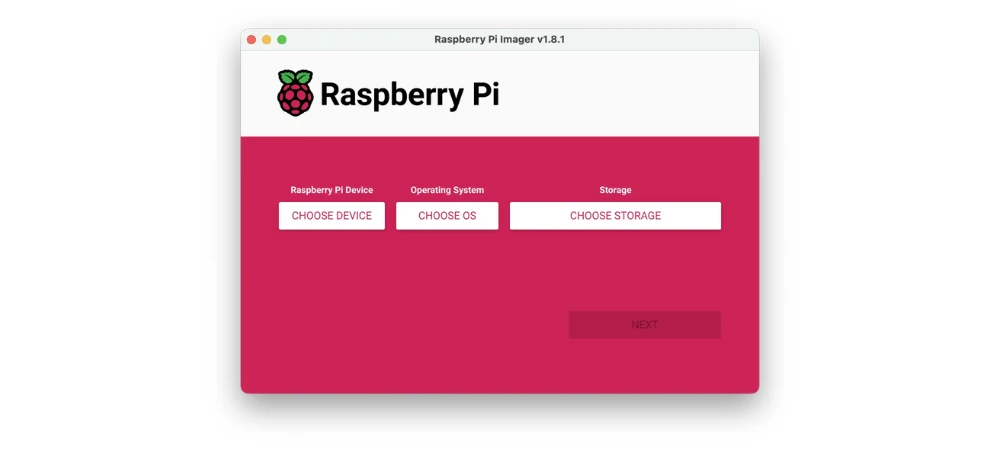5110+ reviews
Order by 16:00 for same day shipping
14 days return
GB
EN
Individual
Business
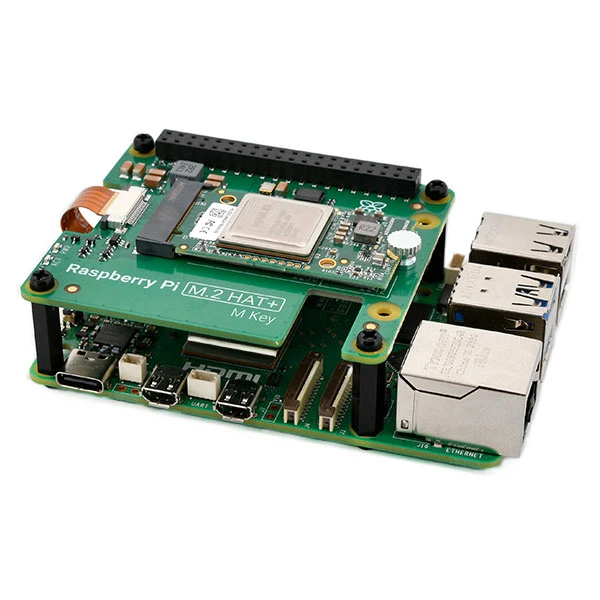
29/01/2025
Raspberry Pi AI Kit
Raspberry pi has released the Raspberry Pi AI Kit in collaboration with the company Hailo. This new product offers a breakthrough for consumers and companies who want to make AI projects themselves. The kit ensures that you can recognize people and/or objects with a Raspberry pi camera. But you can also run other AI on it. So it offers many possibilities. The chip consumes only 2 watts and is passively cooled. This together with the 13 Tera-operations per second (TOPS) that you get for only €79.95 ensures an excellent price/performance ratio. If you want to start with AI or are already advanced, the Raspberry Pi AI kit is certainly interesting.
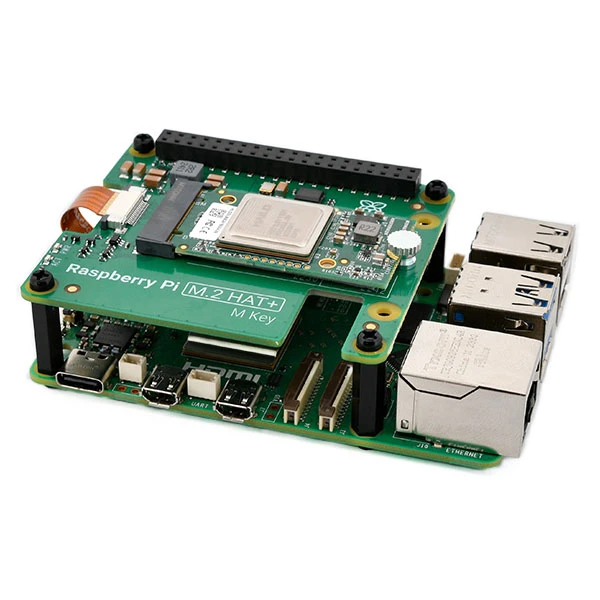
What can you do with the Raspberry Pi AI Kit?
The Raspberry Pi AI Kit lets you quickly build complex AI vision applications. These applications can run in real-time, with low latency and low power requirements.
Suppose you are creating state-of-the-art neural networks used for object recognition, body pose estimation and face recognition. Then they will run entirely on the Hailo-8L coprocessor. This will free up the Raspberry pi 5 CPU to perform other tasks.
The main features of the Raspberry Pi AI Kit are:
– Very low consumption of around 2 Watts
– 13 tera-operations per second (TOPS) of inferencing performance
– Single-lane PCIe 3.0 connection at 8 Gbps
– Full integration with the Raspberry Pi software subsystem
– Compatibility with Raspberry Pi or third-party cameras
– Efficient accelerator hardware scheduling: run multiple neural networks on one camera, or single/multiple neural networks with two cameras simultaneously
– The possibility to combine with a Raspberry pi active cooler
The AI framework is completely open source. It is online on github with documentation. The framework also has a python pipeline so you can code post processing in python yourself. There is also an API that integrates with the GStreamer framework and native Python or C/C++ applications. This also includes use cases that have nothing to do with a camera. Such as performing inference on pre-recorded video files. It is also possible to use your own neural network with the Hailo-8L AI Accelerator.
The Hailo-8L supports a variety of deep learning models and applications out of the box through its robust software suite. This suite includes the Hailo Dataflow Compiler, which allows users to convert their own neural networks into a format compatible with the Hailo-8L hardware.
It doesn't matter if creating your own neural network is not your thing or if it is not necessary for your purposes. You can always use one of the many pre-trained models. You can find these on the github page. There you will find a variety of pre-trained neural networks. These are very easy to implement and use.
In most cases you will use a Pi camera. However, it is certainly not limited to this. You can also use videos and have them analyzed by a face tracking neural network.
We ourselves have tested the chip together with a Pi camera module 3. Here is our first experience:
The installation.
Note: This test was performed on a Raspberry Pi 5 running Raspberry Pi OS.
Installing the software for the Chip itself and the program (TAPPAS) that controls the chip went pretty smoothly. There wasn't much to install. There was only 1 package that needed to be installed.
We quickly encountered an error, but after a quick question on Hailo's forum, this was quickly resolved.
Testing.
It was pretty easy to use thanks to the documentation on github. It explains step by step what you need to do to get it working. This also made it pretty easy to get started.
The AI kit works well together with the pi camera. We soon had everything up and running with the pi camera and one of the example neural networks. These are also available on the rpicam-apps github page.
The test also went well, it managed to identify things quickly and well and also very accurately. For example, when a neural network is running that can identify objects and people, you notice that the CPU and GPU on the Pi are only around 16%. This is because the workload is largely taken over by the AI chip. All calculations in the neural network/ the AI are performed in that chip. Only the conversion of video to usable data for the neural network does not go via the chip. Hence the low increase in the percentage.
We ran a neural network ourselves at around 30 fps, which worked flawlessly.
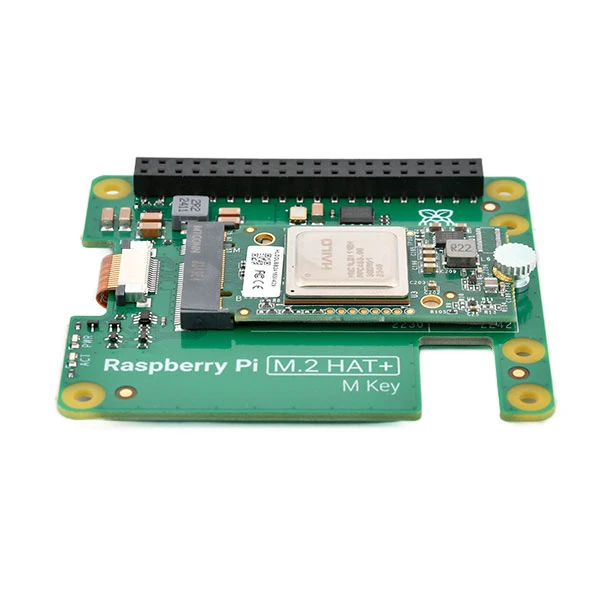
Raspberry Pi AI Kit Conclusion
The Raspberry Pi AI Kit , developed with Hailo, is a powerful solution for AI projects. The device is suitable for both beginners and advanced users. With the Hailo-8L coprocessor, you can realize advanced AI applications such as object and face recognition. This frees up the Raspberry Pi CPU for other tasks. The kit is energy efficient, consuming only 2 watts and offering 13 tera-operations per second for €79.95. This makes it an excellent price/performance ratio.
The open-source AI software and extensive documentation on GitHub make the kit easy to use. Even without much AI experience, you can easily get started. With the option to use pre-trained models, the kit is flexible and accessible.
Our tests showed that installation is smooth and performance is impressive. The AI chip handles most of the processing load, which ensures low CPU and GPU load. This results in accurate and efficient object and face recognition, even at 30 fps.
The Raspberry Pi AI Kit is an excellent investment for anyone looking to explore AI. It offers powerful performance, easy-to-use software, and extensive capabilities.
